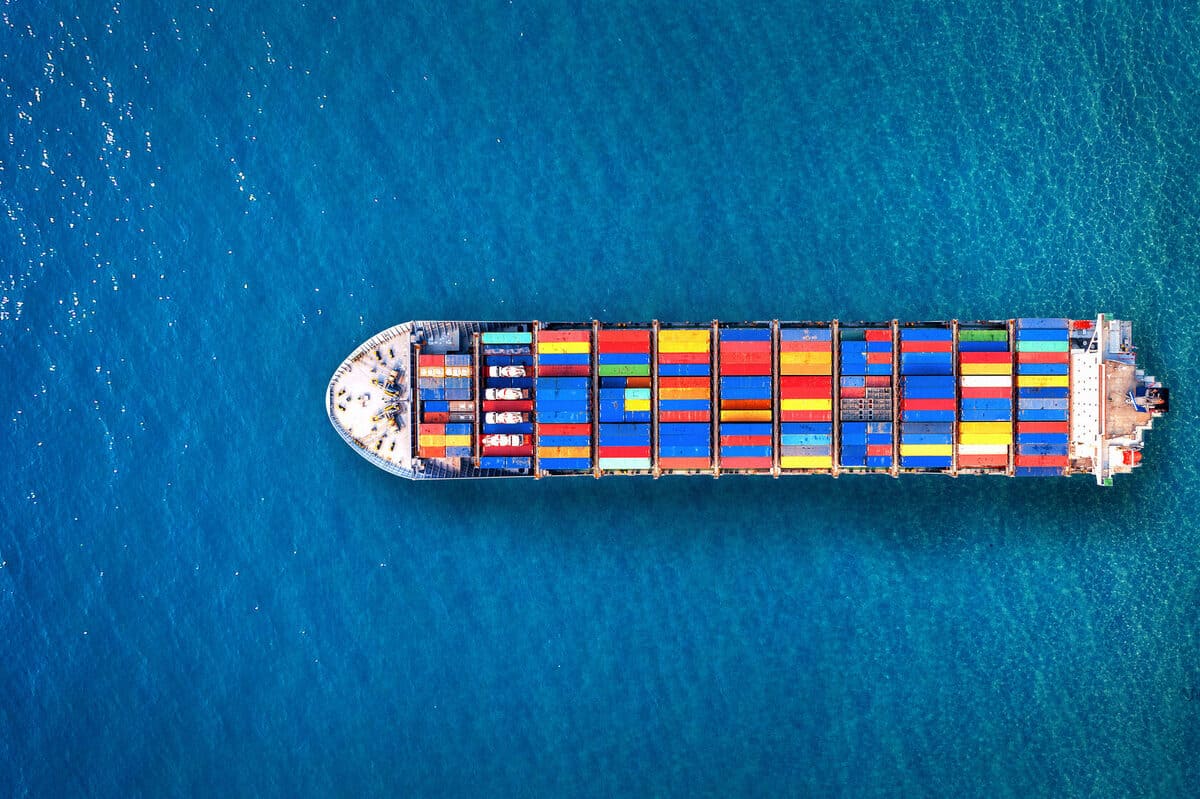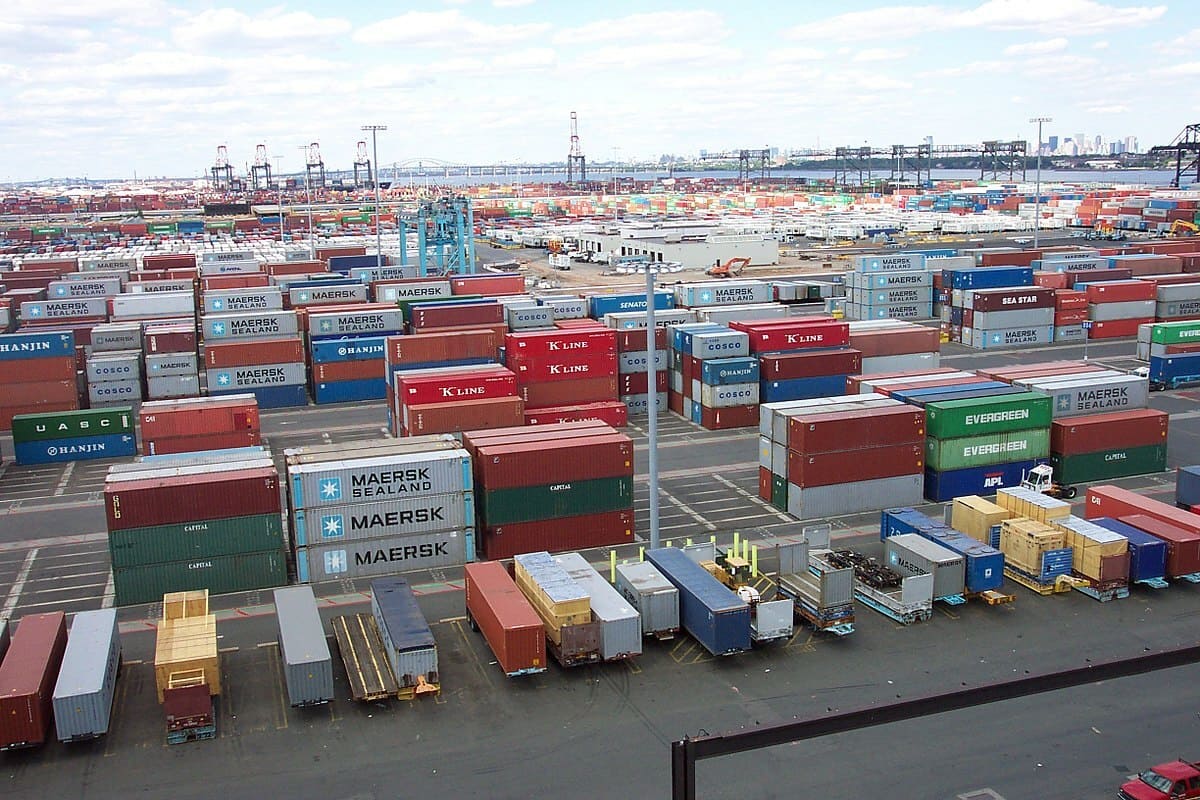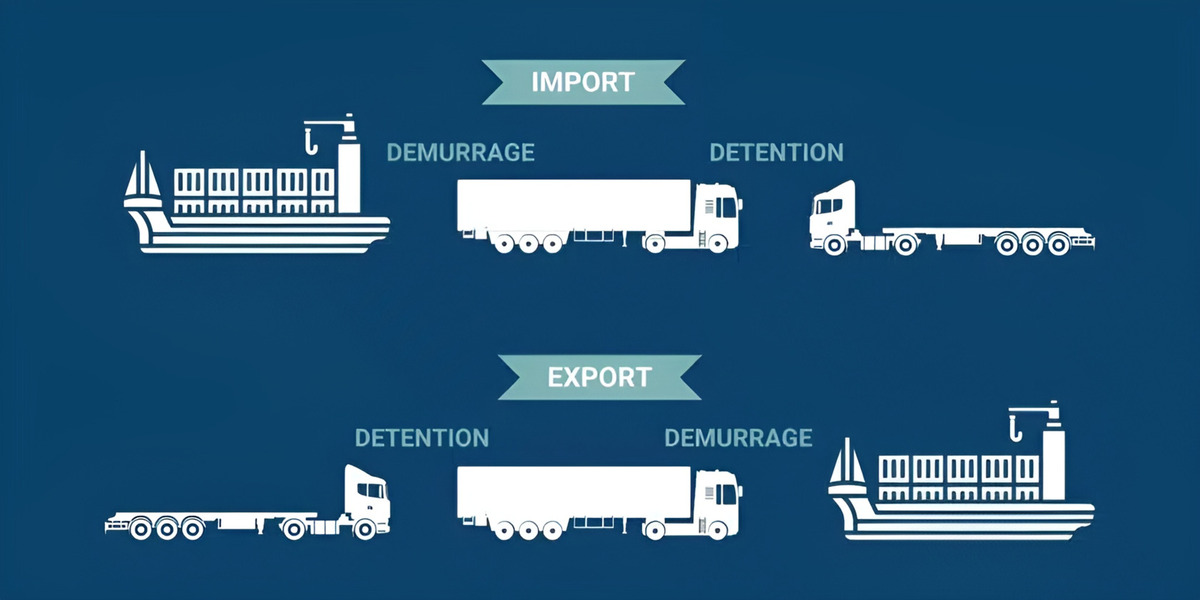
Article content:
Cargo delays during sea transportation require additional efforts to resolve these issues, but also often lead to unforeseen financial losses. Among them are payments for lay-up and delay of containers that are too long at the port of destination or were not returned to the warehouse on time. Today we will understand in detail what demurrage, detention and storage are, what is the difference between them.
Once the vessel arrives, shipping companies give importers a certain amount of time to pay all fees, complete customs clearance, and receive the goods. During this period, the container can remain in the port free of charge. However, due to various factors, importers may need more time to complete the necessary formalities.
Demurrage (in English "demurrage") is a fee charged for exceeding the allowed storage time of a container at a cargo terminal. Each terminal has its own free period (from several days to two weeks). The container was delayed longer than the specified period - the carrier is fined for each day of downtime. The amount of container demurrage is determined individually.
Detention (in English "detention") is a financial penalty charged for late return of an empty container after it has been taken out of the terminal. There is a set deadline to return the container after delivery of the cargo by sea. If the carrier does not meet this deadline, he will also be charged a penalty for each day of delay.
Each terminal or container owner individually develops the conditions of detention and the amount of the fee. It is important to note that for the use of specialized containers (for example, equipped with temperature control systems), the fine can be significant.

When demurrage and detention are charged for import and export.
The size of demurrage and detention is determined by the shipping line based on its calculations. Therefore, if you have sea shipping from China, the cost may vary significantly in different ports. Rates depend on the container type, destination port, and other factors. They are usually specified in USD per day of delay. Key considerations:
Calculation formula: Demurrage/Detention amount = number of overdue days × daily rate.
Conditions: free period – 5 days, rate – $100/day.
Scenario: container issued on May 1, returned on May 8.
Calculation: 3 overdue days (May 8 – May 1 – 5 days). Amount = 3 × $100 = $300.
Conditions: free period – 3 days, rate – $150/day.
Scenario: cargo arrived on May 1, removed on May 5.
Calculation: 2 overdue days. Amount = 2 × $150 = $300.
Storage (in English "storage") - payment for storage of a container in a specialized warehouse or in a terminal after the set demurrage period has expired. The amount of payment may vary depending on the conditions of a particular port or warehouse.

Storage of containers in the port
Understanding the concepts of demurrage, detention and storage will help you optimize costs and effectively plan logistics.
Avoiding demurrage and detention requires meticulous planning and coordination. Here are some steps you can take to avoid these fines:
Taking into account all these aspects will help to create an effective plan to avoid penalties. DiFFreight specialists will help you with international cargo transportation, prepare documentation in advance and optimize the route to reduce the risks of cargo delays and additional charges.